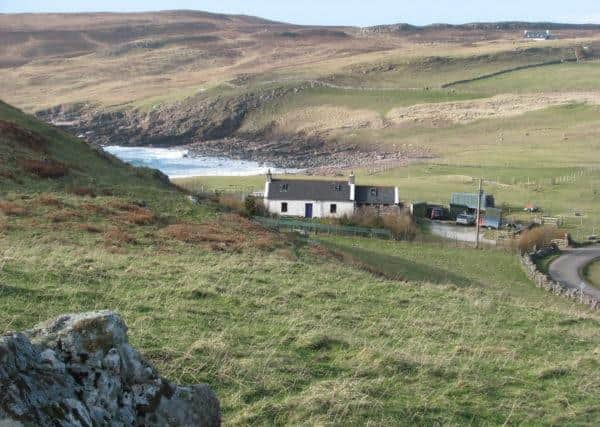Radical land reform could help address long-term social injustice


Jimmy Reid’s famously coruscating critique of capitalism began by defining what he meant by the term ‘alienation’:
It is the cry of men who feel themselves the victims of blind economic forces beyond their control. It is the frustration of ordinary people excluded from the processes of decision making. The feeling of despair and hopelessness that pervades people who feel with justification that they have no real say in shaping or determining their own destinies.
Advertisement
Hide AdAdvertisement
Hide Ad

The remainder of Reid’s speech mapped the contours of a political philosophy and practical action to eradicate what he saw as the establishment’s use of profit as the sole criterion to evaluate economic activity.
Restructuring the institutions of government to involve the people in the decision-making was a central component of the vision Reid laid out from his vantage point at the lectern in the University’s Bute Hall. So too was his call to:
make our wealth-producing resources and potential subject to public control and to social accountability. Let us gear our society to social need, not personal greed.
A great deal of what Jimmy Reid had to say about power, economic and social injustice resonates with the long history of Scotland’s Land Question. In the 1880s the Highland Land League campaigned for land justice in the wake of the Highland Clearances of the 18th and 19th centuries, leading to the passing of the Crofters Holdings (Scotland) Act 1886. Three decades later, the Land Settlement (Scotland) Act of 1919 enabled the Board of Agriculture to repeople places such as North Talisker in Skye by means of negotiated sales of land from existing private landowners or, if necessary, by powers of compulsory purchase.
Advertisement
Hide AdAdvertisement
Hide AdThese transformative examples appear almost unimaginably radical when viewed from the 21st century. Yet they are a reminder that land reform is an essentially political endeavour.
They are a reminder, too, of what can be achieved in practical policy terms if the political will exists to legitimately intervene in private property rights.
Much of land reform’s contemporary policy focus from the mid 1990s onwards has been on diversifying Scotland’s unusually concentrated pattern of large-scale private land ownership; 67% of which has been calculated as being owned by 0.025% of the population.
The scale and concentration of landholdings matters because who benefits from these arrangements,is central to shaping what kind of nation Scotland aspires to be. Now, as in the 1880s, the Land Question concerns the locus and exercise of landed power.
Advertisement
Hide AdAdvertisement
Hide AdAlmost a decade ago the Scottish Government-appointed Land Reform Review Group highlighted the scope for concentrated rural land ownership to subvert shared societal objectives, stating:
The concentrated ownership of private land in rural communities places considerable power in the hands of relatively few individuals, which can have a huge impact on the lives of local people and jars with the idea of Scotland being a modern democracy.
The need to speak truth to landed power by asserting land reform’s role as a progressive force for the common good has never been greater. The climate and nature emergencies demand significant changes to land use to help decarbonise Scotland’s economy and restore depleted biodiversity in ways that ensure a just transition to meeting these goals.
The depopulation crisis facing many of our rural and islands communities, much of which is rooted in a shortage of affordable housing, inadequate infrastructure, and gaps in services provision, is an existential threat to their long-term futures.
Advertisement
Hide AdAdvertisement
Hide AdIn our towns and cities land lies vacant and derelict or is banked as an asset for private gain rather than being put to the service of communities’ wellbeing. A pervading theme cutting across all of these profound 21st century policy challenges is the growing recognition that people in our rural and urban places are being increasingly locked out of their fair share of what should be land’s common wealth.
That contemporary sense of communities’ alienation is something that Jimmy Reid would well recognise. With a new Land Reform Bill looming, the central political question, over which Reid’s legacy as a lifelong campaigner for social justice casts a long shadow, is what Scotland’s Government and Parliament propose to do about it.
@CalumMacleod07
Full version of paper at: https://reidfoundation.scot/2023/07/land-reform/